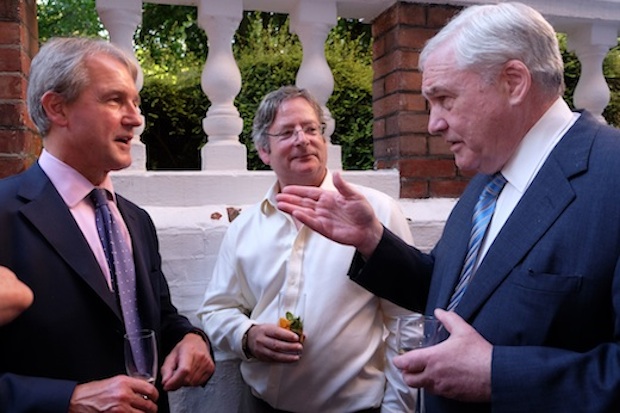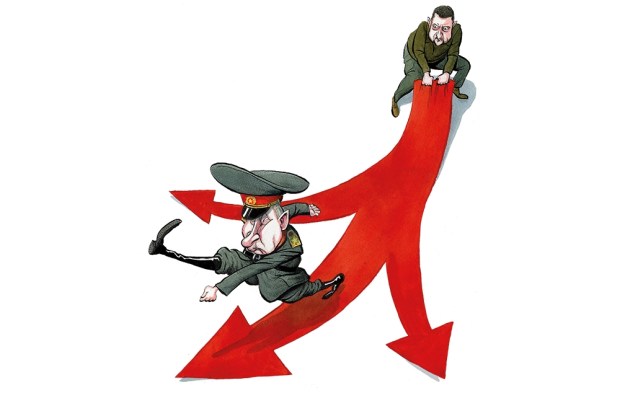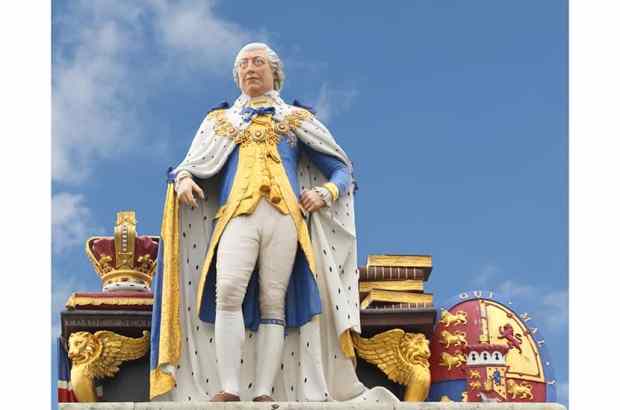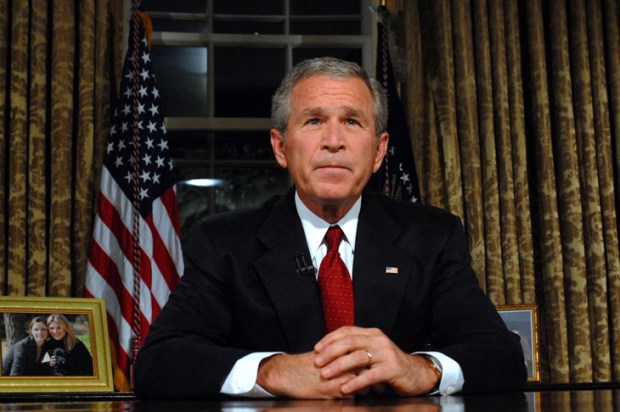The former proprietor of this magazine, Conrad Black, is in London at the moment with his gorgeous wife Barbara, and I’ve got very bad news for those of his enemies who predicted that he’d be a social pariah when he got out of jail. At lunches, parties and dinners I’ve attended this week in his honour, he and Barbara have been feted by the leader of one of Britain’s largest political parties, a household-name supermodel, a former foreign policy adviser to a revered prime minister, members of the royal family, a senior industrialist, a former Commonwealth prime minister, a former British foreign secretary, several House of Lords colleagues of his and Britain’s most respected publisher, and that’s even before he arrives at the Speccie party this week. Britons are far less snooty about incarceration than Americans, and believe in the concept of repaying one’s debt to society. When I visited Conrad in his Florida penitentiary a few years ago, I didn’t really know what to expect. I know imprisonment would have broken me, but as he came out of the locked doors into the prison yard he looked as if he’d stepped off a yacht.
To the magnificent Skinners’ Hall in the City to watch my wife, Susan Gilchrist, CEO of the financial communications group Brunswick, be feted as a newly elected honorary fellow of King’s College London. A tremendously proud moment, only slightly spoilt by the fact that I seemed to be about the only person there not to be wearing an order, medal or decoration. I felt naked. Along the enormous rack of medals sported by Field Marshal Lord Guthrie was a yellow-ribboned one I didn’t recognise, so I asked him what it was for. ‘I had to put down a native revolt in Espiritu Santo about 30 years ago,’ he said, before adding, ‘They only carried bows and arrows and all they wore were penis-sheaths.’ I suddenly felt awfully less naked. Intrigued, I looked into what’s called the coconut war of 1980 and, needless to say, Charles was being modest. It was a nasty, sharp little engagement in which people died and the French seem to have been on both sides.
Last Saturday I went to the Royal Hospital, Chelsea, for a Solemn Drumhead Service of Remembrance for those who volunteered for the Great War, a magnificent occasion. The Queen wore purple, but otherwise the variety of uniforms worn was astonishing, with spurs, frogging on coats, epaulettes, goose-feather plumes on cocked hats, the works. Although the invitation told us ‘Full Ceremonial Day, less Sword’, there seemed to be plenty of swords about. More gong-envy, of course, but I was also struck by a sudden jolt of nostalgia, like a rabbit-punch in the solar plexus, when I remembered buying a pint for a Chelsea Pensioner in the Prince Albert pub in Victoria Street 30 years ago and listening spellbound to his tales of the trenches. It’s amazing to think that the London Regiment alone had 88 battalions by 1918. (Today the entire British army has only 36 regular and 14 territorial battalions, and there are now considerably more hairdressers in the UK than there are members of all three armed services combined.
Aside from the splendid ceremony in Chelsea last weekend, perhaps the best long-term commemoration of the Great War is being undertaken by my own profession. Several hugely impressive history books have been published on the conflict, and thankfully there’s no sign of the public getting the literary equivalent of trench-foot yet. Margaret Macmillan’s The War that Ended Peace, Max Hastings’s Catastrophe, Allan Mallinson’s 1914, Christopher Clark’s The Sleepwalkers, Saul David’s 100 Days to Victory, William Philpott’s Attrition, David Reynolds’s The Long Shadow: British (and in Margaret’s case, Canadian) historical scholarship has more than risen to the challenge presented by this doleful centenary, and I’m sure there’ll be plenty more by the time the Last Post sounds in November 2018. As chairman of the annual Guggenheim-Lehrman Prize for Military History — $50,000 to the winner — I expect to be inundated with worthy contestants for years to come. (Publishers please take note.) In the military, historical and biographical spheres at least, I suspect that English-language publishing is experiencing a golden age.
I live in the USA and love Americans, but I can see when they go too far. In particular their obsession with pampering their dogs never fails to astound me, with some owners putting little red leather bootees on their dog’s feet before taking them for a walk in Central Park. At preprandial drinks at a dinner party on Fifth Avenue just before I left to come over here, our hostess excused herself saying: ‘I’m so sorry but I need to go away for five minutes — I need to discuss menus with my dog-chef.’
Got something to add? Join the discussion and comment below.
Get 10 issues for just $10
Subscribe to The Spectator Australia today for the next 10 magazine issues, plus full online access, for just $10.
You might disagree with half of it, but you’ll enjoy reading all of it. Try your first month for free, then just $2 a week for the remainder of your first year.














Comments
Don't miss out
Join the conversation with other Spectator Australia readers. Subscribe to leave a comment.
SUBSCRIBEAlready a subscriber? Log in